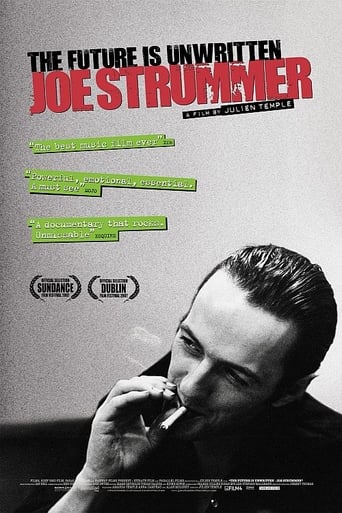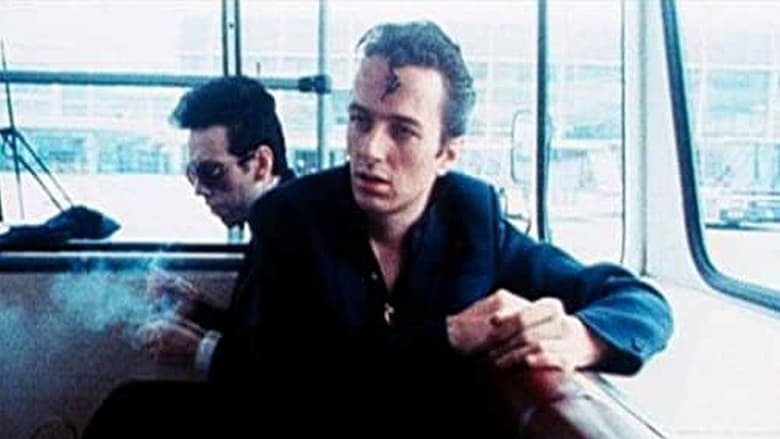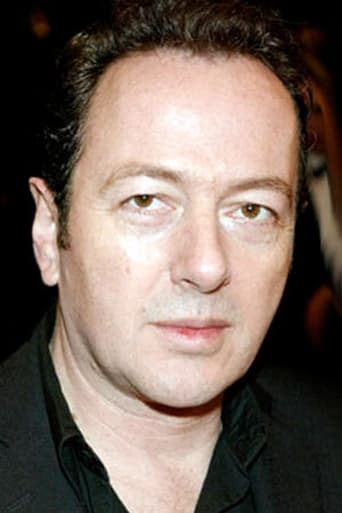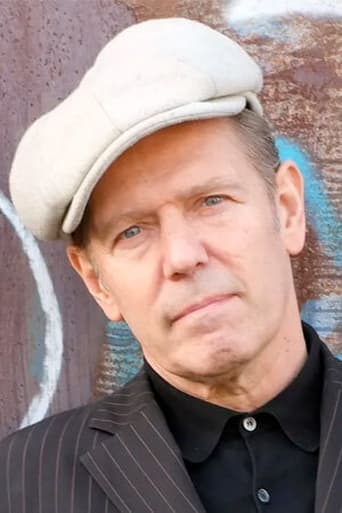Joe Strummer: The Future Is Unwritten (2007)
As the front man of the Clash from 1977 onwards, Joe Strummer changed people's lives forever. Four years after his death, his influence reaches out around the world, more strongly now than ever before. In "The Future Is Unwritten", from British film director Julien Temple, Joe Strummer is revealed not just as a legend or musician, but as a true communicator of our times. Drawing on both a shared punk history and the close personal friendship which developed over the last years of Joe's life, Julien Temple's film is a celebration of Joe Strummer - before, during and after the Clash.
Watch Trailer
Cast
Reviews
I don't have all the words right now but this film is a work of art.
Good story, Not enough for a whole film
Expected more
A Masterpiece!
Joe Strummer: The Future is Unwritten is maybe the first time one has seen a documentary done a "punk rocker" like this, where it's a story of the ups and downs and valleys and little peaks for a rock star done in the style of Eisenstein caught in the midst of a room covered with punk garb and an assistant with a mohawk. It mixes archival footage, interviews, movie footage from Animal Farm and 1984, Peter Cushing movies and Raging Bull, as well as a kind of loose structure formed out of 'London Calling' radio clips that Strummer did with his own music choices for his audience, and it's a mix that the suits the director wonderfully. His previous film was a revisionist take on the Sex Pistols- maybe the masterpiece of punk-rock docs, the Filth and the Fury- and the Future is Unwritten comes just as close to the subliminally, anger, trouble, and creative spirit that went with its subject matter.Can anyone completely know Joe Strummer? Probably the same could go for Bob Dylan, who also has a movie about him out now that stretches the boundaries of cinema in I'm Not There. Temple raises questions for the fans of the Clash who might've not known certain things; that Strummer could be a very generous front-runner to the fans that needed help, and could also get p-od if his audience wasn't in some check with himself (or rather that they could be connecting with the audience and not some abstract rock-blob, which they feel they become by the time of Shea stadium); that towards the end of the Clash it was just Strummer and his management team (!); that Strummer anguished for the better part of a decade over how his career would go- this part I did know- that he went into some movies, made a horrible effort to get out of his record contract, and drifted in the tide of experiencing whatever for inspiration. His tale is more enigmatic than most, but as any artist he was many things at any time: moody to a fault, pushy, pleasant, quiet, frustrated, quixotic, and always with ideas that could come from anywhere, from Central American rebel uprisings to his walk from one place to another.It is, more often than not, a sad film, probably more-so than the destructive tome on the Pistols, because Temple brings up many 'what-ifs', and a lot of the loneliness that could encompass Strummer (i.e. the scene when he's recording for days on end by himself in the studio shows him frayed and frazzled, as he sometimes appears in interviews too) and carried around him with, as any major rock and roll personality has, a rotten past and family history (father, brother, et all). But all those moments when Temple gets the audience to really feel the weight of the fact that such a man has been gone for good for five years now, he also reminds us brilliantly what he DID accomplish. There is a mark left from him, on his fans and on his loved ones and on the likes of Bono and Scorsese and (as funny as it is to see him Jack Sparrow-ed up) Depp, not to mention practically any *good* punk band.Strummer was a thinking-man's punk, one who's lyrics could be taken into context of political and social significance, and had the stamina- along with his rowdy band-mates- to try and do what few rock bands could ever do: make a significant impact on consciousness, as if it were intuitive to do so. That they were eclectic didn't hurt either (even if, arguably, the Clash were more significant than the Mescaleros could ever be). And, in the end, the Future is Unwritten is mandatory viewing for anyone who gave a g*damn about the Clash or about the progression of the creative forces that started, actually, in folk and hippie music, progressed through punk, and went back out again into techno and, gasp, hippies and punks combined! It's daring for what's in-between the lines of the typical rock and roller story, and how Temple and his team make one of the best edited films of the year.
Having seen the Glastonbury film I was expecting Julian Temple to do a good job with this but I admit to having been blown away by the excellent use of footage material and wonderful campfire interviews.The early footage is excellent and informative as is the range of characters interviewed from the pre-Clash era and the contribution they made.Also it was excellent to see the famous names (too many to mention) getting their chance to to pay tribute to the great man.This film left me with a lump in my throat and tears in my eyes but also extremely pleased that Joe has received the epitaph he deserves and I was left with the final inspiring message.Well done Julian Temple for another excellent film and for assembling this magnificent testament to a great man.
I love the music of the Clash and I love the music of Joe Strummer and The Mescaleros. I went to this movie hoping to learn about the man behind most of that. But I came out of the theatre not knowing much more about Joe than I already did after reading the entry on Wikipedia. The movie never really gets through to the person, his thoughts and feelings. What they did was to collect the little material that they had, shaky blurry videos and to interview some people about Joe Strummer at a camp fire. It turns out that most of these people knew him very little or not at all, and that the director just wanted them in the movie in order to have some more celebrities say, "Oh, he was such an inspiration to all of us". Like Bono or Johnny Depp (whom they seemingly asked to keep his pirate costume on to benefit from his current success in Pirates of the Caribbean). It seems that the director could not even wait until the body was cold before he jumped in to sell his version of "the greatest punk rocker and hippie at heart" that ever lived, sanctifying the person without really knowing enough about him.Sure, being a fan i enjoyed seeing the images of the band, hearing the anecdotes behind the songs and such, but in the end I felt like what remained as the portrait of Joe Strummer could have easily been told in 60-90 minutes.Go see the movie if you are a fan, otherwise better listen to some music of the Clash or even better the undeservedly unknown Mescaleros, where Joe Strummer reached the peak of his musical development before his death, melting all his rich influences together to one amazing sound.
I can't say anything of this movie by Julian... My comment is I want to cry.. I was really touched of the movie The Future is Unwritten.. Hoping for the next movie of Julian... ^_^ More Power.Joe Strummer was born as John Mellor in Ankara, Turkey on August 21, 1952. His father was a British foreign-service diplomat; his mother, a nurse, was a crofters's daughter from the Scottish Highlands. The family spent much time moving from place to place, and Strummer spent his childhood in a variety of countries. At the age of 9, Strummer and his older brother David, 10, began boarding at the City of London Freemen's School in Surrey. Strummer rarely saw his parents during this time. He developed a love of rock music, listening to records by The Beatles and The Beach Boys, as well as American folk-singer Woody Guthrie (Strummer would even go by the name "Woody" for a few years, until changing his name to "Joe Strummer" a year and a half before the Clash was formed). Strummer was never very close to his brother David, but nonetheless David's suicide significantly changed Joe's outlook on life. After finishing his time in boarding school in 1970 Strummer moved on to London's Central School of Art & Design, where he briefly flirted with the idea of becoming a professional cartoonist. During this time, Strummer shared a flat in the north London suburb of Palmers Green with friends Clive Timperley and Tymon Dogg.For those who didn't know who is Joe Strummer and for those who haven't seen the movie yet...





